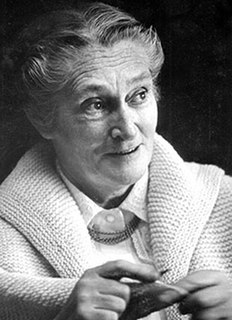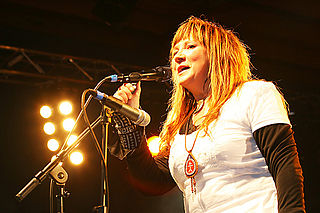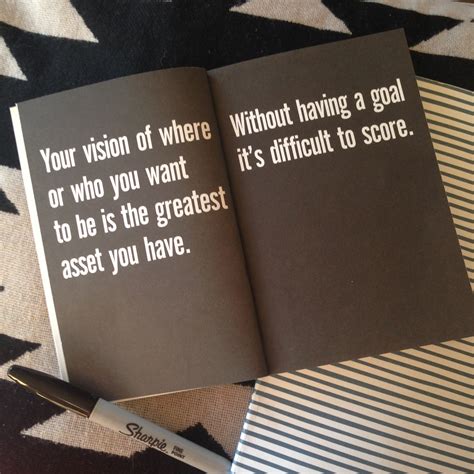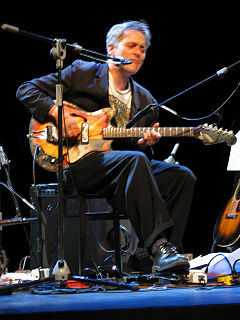A Quote by George Herbert
'It's this accursed Science,' I cried. 'It's the very Devil. The mediaeval priests and persecutors were right, and the Moderns are all wrong. You tamper with it-and it offers you gifts. And directly you take them it knocks you to pieces in some unexpected way.'
Related Quotes
There is no right way to knit; there is no wrong way to knit. So if anybody kindly tells you that what you are doing is "wrong," don't take umbrage; they mean well. Smile submissively, and listen, keeping your disagreement on an entirely mental level. They may be right, in this particular case, and even if not, they may drop off pieces of information which will come in very handy if you file them away carefully in your brain for future reference.
I always wanted to sing, I always loved to sing. As a child I was singing all the time, and my parents were singing all the time, but not the traditional songs because they were very Christian; the Christian Sámis learnt from the missionaries and the priests that the traditional songs were from the Devil, so they didn't teach them to their children, but they were singing the Christian hymns all the time. So I think I got my musical education in this way. And of course the traditional songs were always under the hymns, because it doesn't just disappear, the traditional way of singing.
Risks are a measure of people. People who won't take them are trying to preserve what they have. People who do take them often end up having more. Some risks have a future, and some people call them wrong. But being right may be like walking backwards proving where you've been. Being wrong isn't in the future, or in the past. Being wrong isn't anywhere but being here. Best place to be, eh?
Coming from a sort of very rigid European type of training to this culture which is just a little more open - a lot more open, and kind of curious, and asking different sorts of questions.Because the problem for me was that the European modernist movement in the '70s was all about right or wrong. Some things were right and you were dealing with the truth, as it were, and then some things were wrong and therefore not allowed.
When I was 16 I started keeping a diary in which I recorded my disagreements with the famous philosophers. I didn't insist that they were wrong, that I was right and I had to prevail. I just agreed and disagreed with them. I thought there was a high degree of probability that I was right and some other thinkers were wrong. But I wasn't positive about it.
Mistakes are at the very base of human thought, embedded there, feeding the structure like root nodules. If we were not provided with the knack for being wrong, we could never get anything useful done. We think our way along by choosing between right and wrong alternatives, and the wrong choices have to be made as often as the right ones. We get along in life this way.
Science is a way of getting knowledge. It's a method. It's a method that really relies on making mistakes. We propose ideas, they are usually wrong, and we test them against the data. Scientists do this in a formal way. It's a way that everyone can go through life; that's how we should be teaching science from a very young age.
I think that there are excesses that exist in all societies. I won't say it's normal to have them, but it's natural to have them. I'm watching very closely ... what Snowden has done. I don't know him personally. I wanted to talk to him, but all of the security people didn't allow me to. But I think that he took the wrong approach to a very right thing which he was doing. Just the implementation was wrong. There was a clear platform to what he was doing, although of course that there were some mistakes made.







































